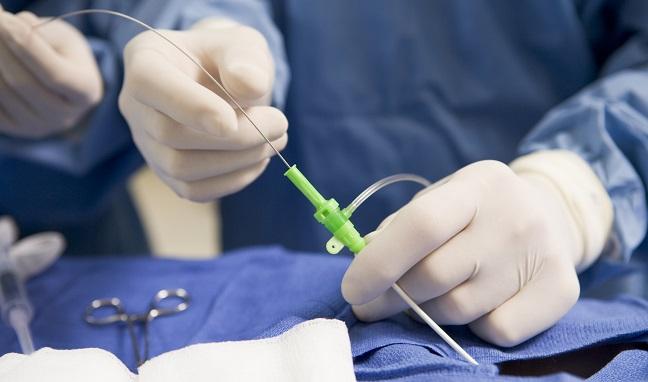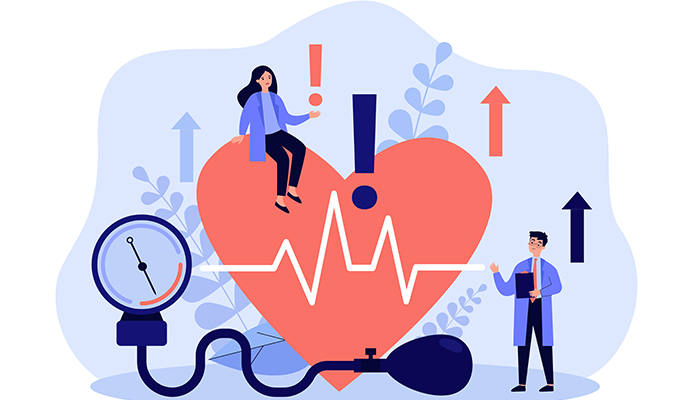Understanding the Relevance of Cardiology in Modern Healthcare Services
Cardiology plays a crucial role in modern-day healthcare, especially as heart problem proceeds to be the leading source of death worldwide. Breakthroughs in diagnostics and therapy have actually transformed patient treatment, enabling earlier treatments and boosted outcomes. The shift in the direction of precautionary cardiology empowers individuals to handle their health proactively. As modern technology continues to advance, the integration of cutting-edge services might further redefine cardiology's effect on public health, motivating a closer exam of arising fads and their implications.
The Prevalence of Heart Condition and Its Effect On Public Health
Although heart illness remains the leading cause of death internationally, its impact expands much past private people to impact public health systems and economic situations. The high prevalence of cardiovascular disease places a significant stress on healthcare resources, requiring increased funding for therapy, rehabilitation, and avoidance programs. Public wellness initiatives have to resolve threat factors such as weight problems, smoking cigarettes, and inactive way of lives, which contribute significantly to the increasing incidence of heart conditions.Moreover, the financial concern related to heart condition is tremendous, including not only direct clinical costs however likewise indirect expenses associated with lost efficiency and premature mortality. Areas encounter challenges in handling these expenses, usually bring about disparities in healthcare gain access to and outcomes. As the population ages and lifestyle-related risks remain to rise, the necessity for reliable cardiology treatments ends up being vital. Dealing with heart disease is not just an issue of individual health and wellness yet also an essential public health and wellness top priority.
Developments in Heart Diagnostics and Imaging Techniques
Current innovations in heart diagnostics and imaging strategies have transformed the area of cardiology, improving the ability to keep track of and discover heart problem. Techniques such as cardiac MRI, CT angiography, and echocardiography have actually ended up being increasingly advanced, offering detailed photos of heart structures and features. These techniques enable for the very early identification of conditions like coronary artery illness, cardiac arrest, and valvular disorders.Moreover, improvements in non-invasive diagnostics, such as wearable modern technology and remote surveillance devices, have empowered clients and doctor. These devices help with real-time monitoring of heart rhythms and other crucial indicators, resulting in prompt interventions. Additionally, man-made intelligence is being incorporated right into imaging evaluation, improving accuracy and performance in diagnosis.
Advancements in Therapy Options for Heart Issues
Recent improvements in cardiology have resulted in considerable advancements in treatment options for heart problems. These include innovative surgical techniques that enhance step-by-step results and emerging medications that offer brand-new opportunities for treatment. As the area progresses, these technologies play an important duty in boosting client treatment and outcomes.
Advanced Surgical Techniques
Advancements in medical strategies have transformed the landscape of cardiology, offering new wish for individuals with heart conditions. Minimally invasive procedures, such as catheter-based treatments, have considerably minimized recovery times and health center stays. Techniques like robotic-assisted surgical procedure boost accuracy, permitting doctors to browse complicated physiological structures with better precision. Developments in imaging modern technology assist in real-time visualization during procedures, improving results. Transcatheter aortic shutoff substitute (TAVR) exhibits a development in treating aortic constriction, allowing shutoff substitute without open-heart surgical procedure. Additionally, hybrid strategies that incorporate catheter-based and medical approaches give customized remedies for different heart problems. These sophisticated surgical techniques not just enhance individual security but additionally increase therapy alternatives, underscoring the vital function of technology in contemporary cardiology techniques.
Arising Therapies and medications
As the landscape of cardiology remains to develop, arising therapies and medicines play a pivotal duty in enhancing treatment options for heart disease. Advancements such as unique anticoagulants and advanced lipid-lowering agents have transformed the management of heart diseases, substantially reducing patient morbidity and death. Furthermore, the development of genetics therapies and regenerative medication offers promising opportunities for dealing with problems formerly considered permanent. Clinical tests are consistently disclosing the efficiency of these therapies, pushing the borders of typical therapies. The assimilation of digital health and wellness innovations facilitates tailored medication, allowing for customized therapy plans based on genetic and way of life variables. Jointly, these innovations emphasize the vibrant nature of cardiology, boosting client end results and redefining criteria of care in modern-day health care.
The Duty of Preventive Cardiology in Patient Treatment
Precautionary cardiology plays a necessary duty in client care by concentrating on the identification of threat elements that add to cardiovascular disease. With way of life adjustment strategies and early detection techniques, health care companies can successfully minimize the occurrence of cardiovascular occasions - Cardiology Jupiter. This proactive approach not only improves patient results yet additionally promotes long-lasting wellness
Danger Element Identification
While cardio illness stay a leading reason of morbidity and death worldwide, effective danger factor identification serves as a cornerstone of precautionary cardiology. Recognizing threat variables such as hypertension, hyperlipidemia, household, and diabetes history is important for early treatment. Medical care professionals use different screening methods to examine these aspects, enabling customized safety nets. Additionally, understanding an individual's lifestyle choices, such as smoking and physical lack of exercise, additionally educates danger analyses. This comprehensive evaluation enables medical professionals to create tailored care strategies focused on mitigating dangers. By focusing on danger factor recognition, health care systems can enhance individual end results and decrease the total burden of cardiovascular conditions, eventually adding to enhanced public wellness approaches and resource allotment.
Lifestyle Adjustment Techniques
A multitude of research studies highlights the critical role of lifestyle adjustment strategies in reducing heart disease danger. These approaches encompass nutritional modifications, raised physical task, smoking cigarettes cessation, and weight management. By adopting a heart-healthy diet regimen rich in fruits, vegetables, whole grains, and lean proteins, people can lower cholesterol degrees and high blood pressure. Routine exercise reinforces the heart and improves general cardiovascular health. Furthermore, giving up cigarette smoking substantially minimizes the threat of heart disease and enhances recovery prices for those with status quo. Weight administration even more adds to cardio health by reducing various other danger factors such as diabetes mellitus and high blood pressure. Implementing these way of life changes not only advertises individual well-being but additionally acts as a keystone of precautionary cardiology in individual care.
Very Early Discovery Methods
Way of life modifications greatly add to decreasing cardio condition threats, yet they are most effective when coupled with very early detection methods. Preventive cardiology stresses the relevance of identifying potential heart issues prior to they rise right into serious conditions. Strategies such as blood stress monitoring, cholesterol testing, and progressed imaging technologies like echocardiograms play essential functions in evaluating cardio wellness. Biomarkers and hereditary testing likewise boost the accuracy of early detection, enabling customized precautionary approaches. Regular heart danger evaluations equip medical care suppliers to intervene proactively, potentially stopping heart strikes and strokes (Cardiology). By incorporating these very early detection methods right into regular care, clients can take advantage of timely lifestyle treatments and targeted treatments, ultimately improving and boosting outcomes quality of life
Integrating Technology Into Cardiology Practices
As advancements in technology remain to reshape different areas, the combination of cutting-edge tools and systems right into cardiology techniques has actually become essential for improving patient treatment and outcomes. Telemedicine systems permit cardiologists to monitor clients remotely, improving accessibility to care while minimizing the problem on medical care centers. Wearable tools, such as smartwatches, allow constant heart rate surveillance, signaling both patients and doctors to possible problems in real-time. Furthermore, expert system (AI) is being utilized image source to analyze large quantities of heart data, aiding in very early diagnosis and individualized treatment plans. Advanced imaging strategies, consisting of 3D echocardiography, improve visualization of heart frameworks, causing much more precise interventions. Digital wellness documents (EHRs) simplify person details administration, ensuring that cardiologists have immediate accessibility to important data. Together, these technological developments are changing cardiology, advertising proactive administration and improved health and wellness end results for people with cardiovascular conditions.
The Significance of Individual Education And Learning and Interaction
Client education and learning and interaction play a crucial role in the monitoring of cardiovascular health. By equipping individuals with understanding concerning their problems, therapy alternatives, and lifestyle changes, healthcare suppliers encourage individuals to take an active duty in their treatment. This proactive approach can result in improved adherence to recommended drugs, dietary adjustments, and exercise routines, eventually reducing the risk news of complications.Engagement likewise cultivates a solid patient-provider relationship, encouraging open communication and count on. When people feel notified and entailed, they are most likely to voice worries and ask concerns, which can cause far better scientific outcomes. Furthermore, educational resources, such as workshops or electronic systems, can boost understanding and advertise self-management strategies. Generally, focusing on person education and learning and interaction is important for boosting cardiovascular wellness, boosting lifestyle, and decreasing health care expenses linked with cardiovascular diseases.
Future Patterns in Cardiology and Their Possible Impact

Often Asked Questions
What Lifestyle Changes Can Lower Heart Problem Danger?
The present question addresses lifestyle modifications that can considerably lower heart problem danger. Cardiology. Embracing a balanced diet regimen, involving in regular physical task, preserving a healthy and balanced weight, taking care of anxiety, and avoiding cigarette can significantly improve cardio health and wellness
How Can I Identify Early Indications of Heart Problems?
Identifying early indicators of heart issues involves tracking symptoms such as upper body pain, lack of breath, fatigue, and irregular heart beat. Timely understanding of these indications can prompt essential medical evaluation and treatment for much better outcomes.
What Are the Distinctions Between Cardiologists and Heart Surgeons?
The distinctions between cardiologists and heart surgeons exist in their roles; cardiologists mostly detect and manage heart conditions via non-invasive methods, while heart doctors carry out medical treatments to fix architectural heart issues. Each plays a crucial, distinctive role.

Exactly how Typically Should I Get My Heart Health And Wellness Checked?
The frequency of heart medical examination varies based upon private risk factors. Usually, grownups ought to undergo evaluations each to 2 years, while those with present conditions may call for more frequent analyses as encouraged by healthcare specialists.
What Function Does Genetics Play in Heart Condition Risk?
Genetics substantially affects heart illness danger, with familial patterns showing inherited problems. Particular genetics can predispose people to high blood pressure, cholesterol concerns, and other cardio issues, highlighting the relevance of genetic testing in examining heart health. Heart illness remains the leading reason of fatality internationally, its impact prolongs far beyond specific patients to influence public health systems and economic climates. Public health efforts have to deal with threat aspects such as obesity, cigarette smoking, and less active lifestyles, which add substantially to the rising occurrence of heart conditions.Moreover, the financial burden connected with heart condition is immense, incorporating not only direct medical expenses however likewise indirect costs associated to lost efficiency and premature mortality. Preventive cardiology plays a crucial role in person treatment by concentrating on the recognition of danger aspects that contribute to heart disease. Synthetic intelligence (AI) and machine understanding are boosting diagnostics and patient monitoring, enabling early detection of heart illness. The distinctions in between cardiologists and heart specialists exist in their over here duties; cardiologists largely diagnose and manage heart conditions through non-invasive methods, while cardiac surgeons carry out surgical procedures to correct architectural heart concerns.